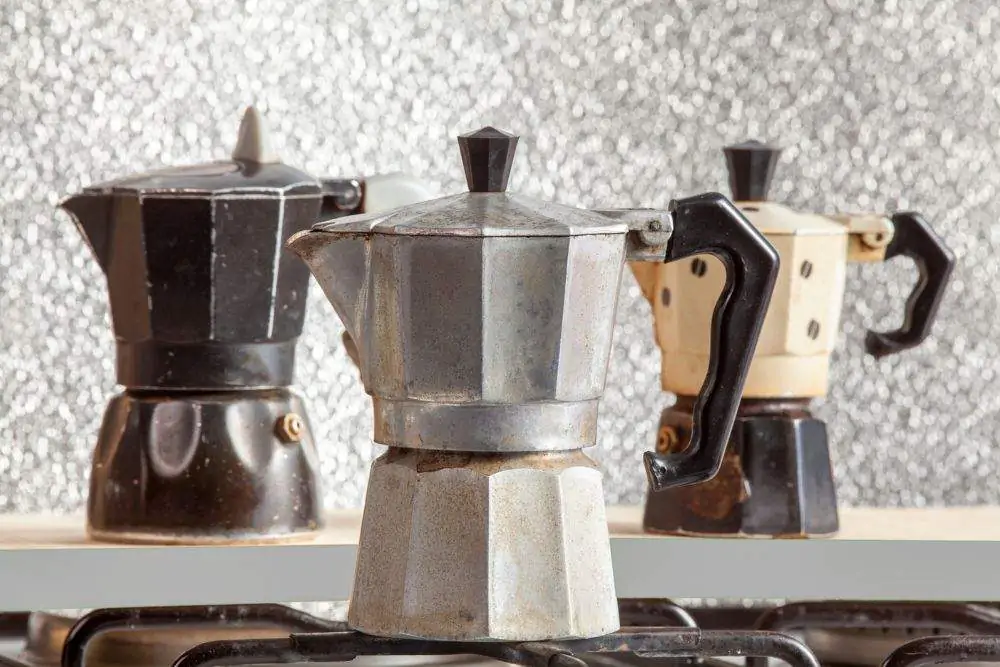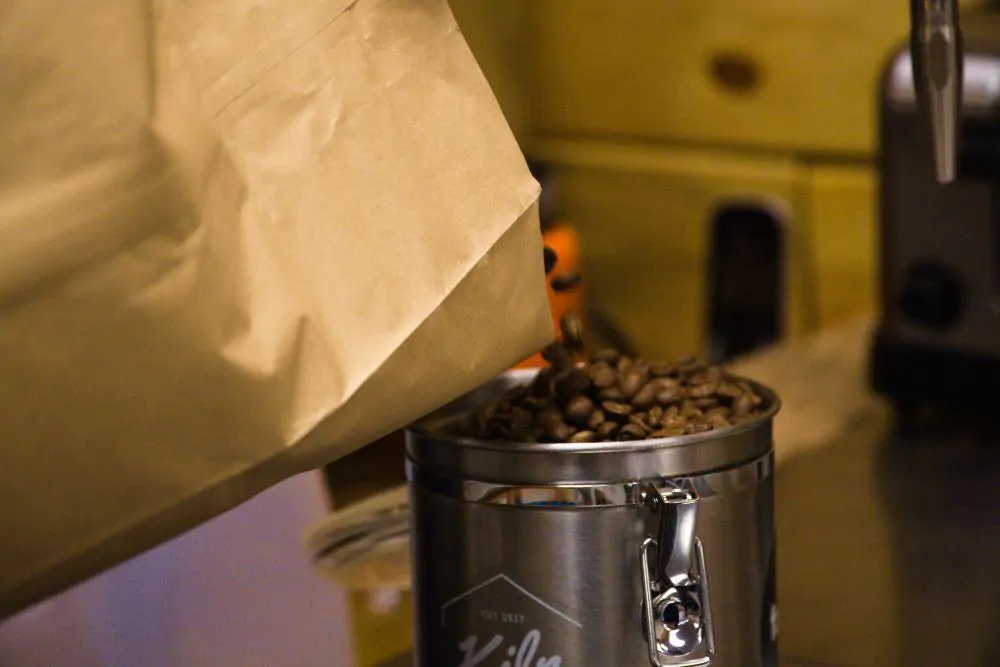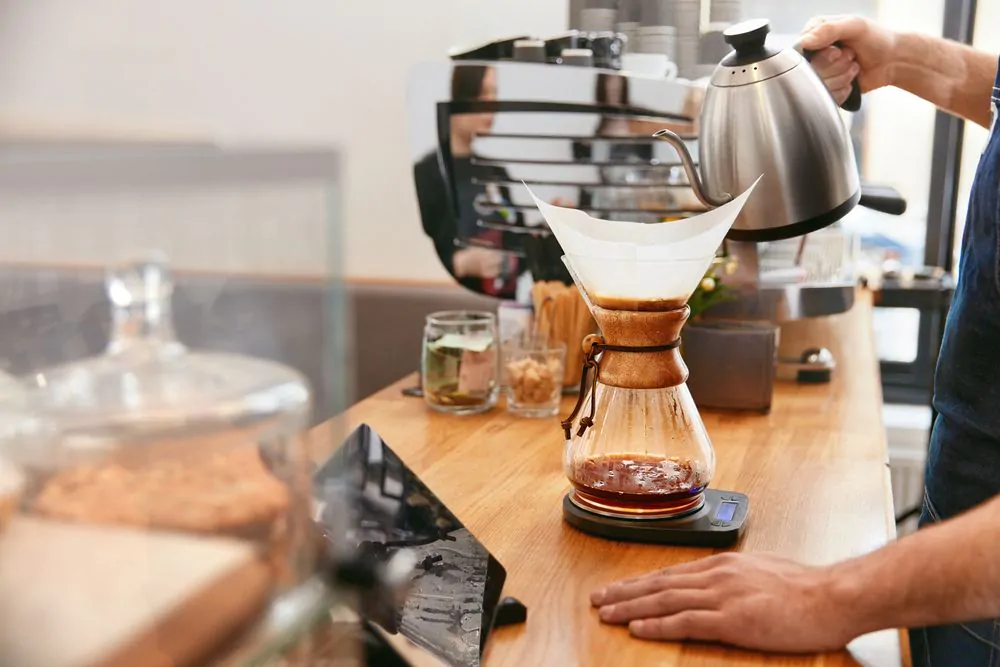Do you have old coffee equipment sitting in your kitchen? You might be wondering, can you recycle coffee makers? Let’s find out.

I love getting through a batch of coffee beans or trying the next trendy coffee brewer, but it leaves behind waste. If you have old coffee makers, it doesn’t seem very eco-friendly to just throw them in the trash. So can you recycle coffee makers?
Most coffee makers are recyclable. However, they shouldn’t go in your curbside recycling bin. Instead, you’ll have to send them to specific recycling centers. In this article, we’ll walk you through everything you need to know about recycling old coffee makers and coffee equipment.
What Kinds Of Coffee Makers Can Be Recycled?
There are dozens of kinds of coffee makers, so we will have to look at them on a case-by-case basis.
Espresso Machines
Espresso machines are generally metal. Some have electrical components, like a touch screen.
Should your espresso machine break down, you should reach out to your local city council to point you in the direction of an appropriate recycling center. The recycling center will repurpose the metal and some of the electrical equipment.
Pod Brewers
Like espresso machines, pod brewers are usually metal with electrical components inside. These can also be sent to local recycling centers.
Some companies will also have a collection scheme for their products. For example, if you buy a new Nespresso machine from the brand’s website or a Nespresso Boutique, you can bring it to your local Nespresso Boutique, and they will send the old brewer to recycling partners.
Glass Brewers
Coffee makers like a French press, V60, and Chemex have large glass components. If your brewer is no longer working, you can bring the glass to a glass collection bin.
Plastic Brewers
Not all plastic is recyclable. You will have to refer to the brewer’s original packaging to find out what yours is made of.
Large components may still need to be sent to a recycling facility. Only certain items are allowed in your home recycle bin; this is because the facilities they’re sent to will not have the means to process everything.
If it is made from non-recyclable plastic, you can put it in your general waste bin. If your brewer is still in good health, you may consider selling it or donating it.
Metal Brewers
Although you may be able to put tin cans in your recycle bin, this doesn’t mean you can throw any metal appliance in there. Should you need to discard a Moka pot and similar metal brewers, you will have to take it to a scrap metal recycling facility.
Are Coffee Bean Cannisters Recyclable?

You can recycle almost all plastic and metal coffee canisters. Make sure to rinse out any coffee residue before you put the canister in your bin.
Metal
Small metal coffee cans are safe to put in a recycling bin; think Nescafé Azera canisters. Almost every type of metal is recyclable. This is because metal can be melted down and forged into something else; it’s also easy to separate from other materials.
Aluminum foil is safe to recycle. However, the foil lids that come on food containers may not be recyclable if they are coated in wax or another substance. The foil covers on K-Cup pods are safe to recycle, but you may need to separate them from the rest of the pod.
Paper
Plain paper is always safe to recycle. However, the paper isn’t waterproof, so most “paper” food containers use additional materials in their designs.
Coffee bean bags are usually coated with wax, resin, or foil. These materials can’t be separated from the paper by the recycling center, so they’re listed as non-recyclable.
Some coffee bean bags are labeled as recyclable or compostable. This means that they aren’t coated with artificial substances and are okay to put in your bin. Check out these uses for coffee filters around the house.
Plastic
The word “plastic” can actually refer to many different thermoplastic materials. Most plastic containers are labeled with a plastic code that identifies the material that was used. This symbol looks like a triangle with a number in the center.
Every company puts the plastic code in a different place. Look for it on the bottom of the canister, near the nutrition facts, or on the lid.
Once you’ve found the code, check your local recycling center’s website to find out which plastic codes they can accept. Although every center is different, the following rules generally apply:
- Codes 1 and 2 are almost universally accepted. These plastics are used for food containers like soda bottles, milk jugs, and standard coffee canisters.
- Codes 3, 6, and 7 are not safe to recycle. These materials include saran wrap, plastic bags, foam, and miscellaneous resin-based products.
- Codes 4 and 5 might be accepted. Some food containers, like yogurt cups, are made from these plastics; they’re usually a bit softer or thicker than containers made with plastics 1 and 2. These plastics process differently, so check with your recycling center.
Coffee Accessories You Can’t Recycle
One of the great things about brewing coffee at home is that it’s better for the environment. Many of the accessories related to commercial coffee aren’t safe to recycle, so think twice before you toss that disposable cup into the recycling bin.
- Coffee cups: Almost all disposable coffee cups are coated in waterproof wax or resin that can’t be removed at the recycling center. Check near the bottom of the cup to see if it’s recyclable; you should see a triangle made from green arrows.
- Coffee lids: Plastic coffee lids usually aren’t recyclable because they’re made from the wrong type of plastic. Even if they’re made from plastics 1 and 2, these items are too small to be sorted by the recycling center.
- Creamer containers: Single-serving creamer containers might be plastic, but they aren’t recyclable. Toss your empty packets in the trash, and consider buying a larger container of creamer to keep at home.
- Stir sticks: Like straws, those red plastic stir sticks are not safe to recycle. Wooden stir sticks are also not recyclable, but they might be compost-friendly.
- Off-brand K-Cup pods: Official K-Cup pods are recyclable, but off-brand pods aren’t always made from the same materials. Check what kind of plastic the cups are made from before you recycle them.
Going Green As A Coffee Drinker
If you make coffee at home, congratulations, you’re already doing quite a bit for the environment. However, you can always do more to reduce the impact of each delicious home-brewed cup.
Compost Coffee Grounds And Filters
Coffee grounds make a great addition to your compost heap. They break down easily, and they also add nitrogen to the soil. The only reason to avoid composting your coffee grounds is if your soil is already very high in nitrogen.
Paper coffee filters can also go straight into the compost heap. Make sure they’re biodegradable; filters made from plastic or coated in wax should go in the trash.
Buy A Reusable Coffee Cup
The coffee cups that you use at home can be washed and rinsed, but what about taking your coffee on the go? Look for a travel mug that’s big enough for your favorite latte. I personally prefer porcelain travel mugs – they’re more fragile, but they don’t add a metallic taste.
Choose An Eco-Friendly Coffee Maker

Coffee machines are relatively eco-friendly, especially if you use the same one for a long time. But if you really want to reduce your carbon footprint, consider buying a pour-over coffee maker. These coffee makers don’t use electricity and are usually made from recyclable materials like metal or glass.
Want to reduce the impact of your favorite drip coffee maker? Turn it off when you’re not using it. This will use less electricity and greatly increase the lifespan of your machine.
FAQs About Recycle Coffee Makers
Can You Recycle K-Cup Pods?
K-Cup pods are made from plastic, aluminum, and paper filters. These elements can be recycled individually, but they need to be separated. Break the K-Cup pod into individual pieces and sort them into the correct categories.
Don’t forget to rinse out the coffee grounds.
Can You Recycle Folger’s Coffee Canisters?
Folger’s coffee canisters and lids are both safe to recycle. These items are made from plastics 1 and 2 and are accepted by almost all recycling centers. Remember to clean out any coffee residue before you put your canister in the bin.
